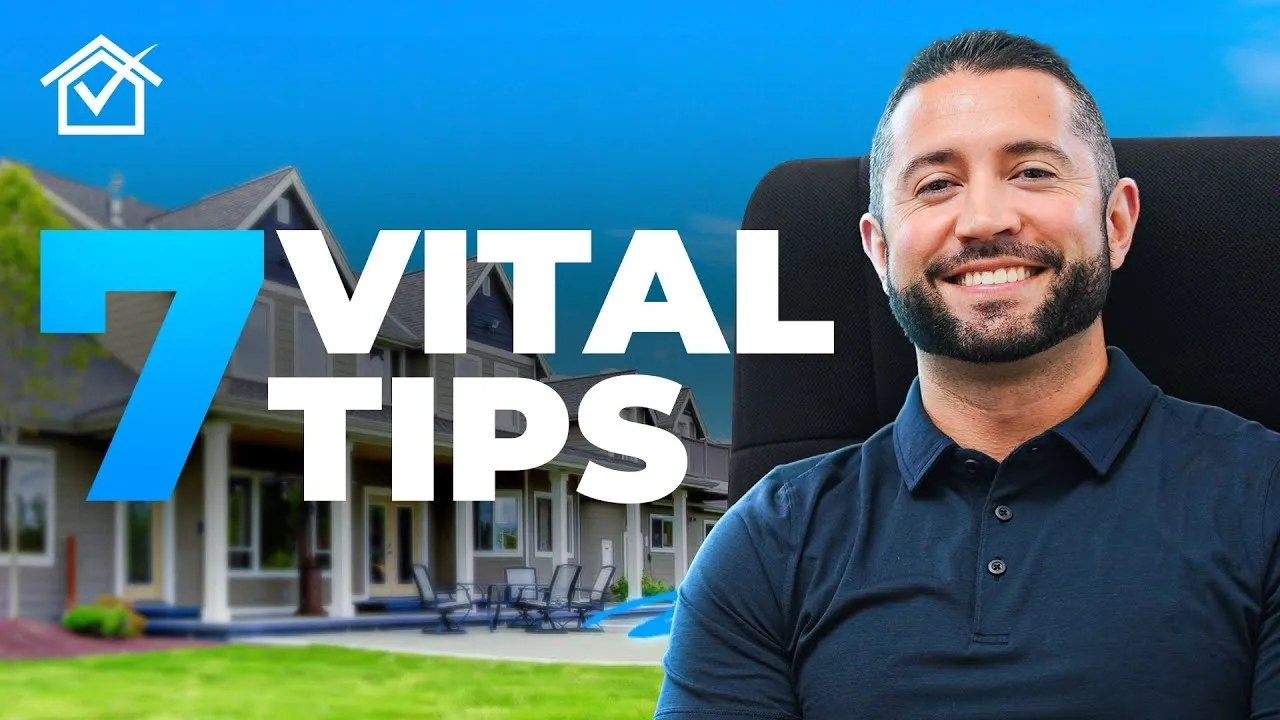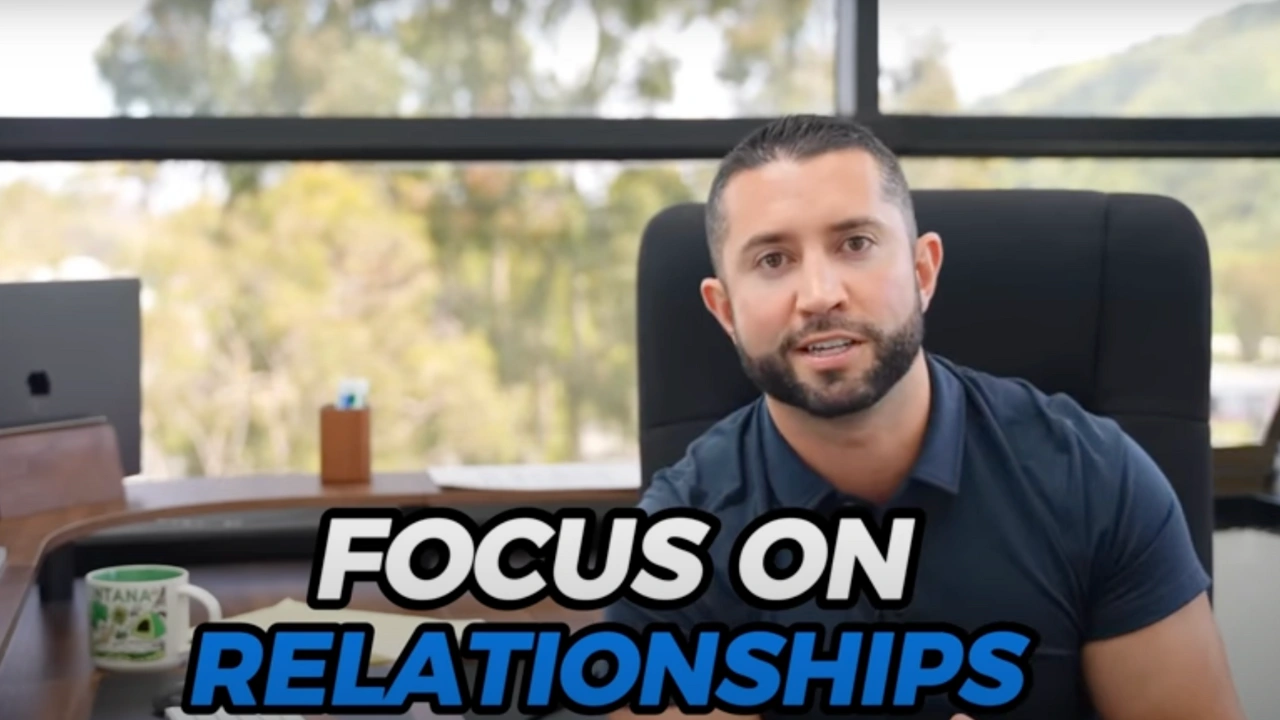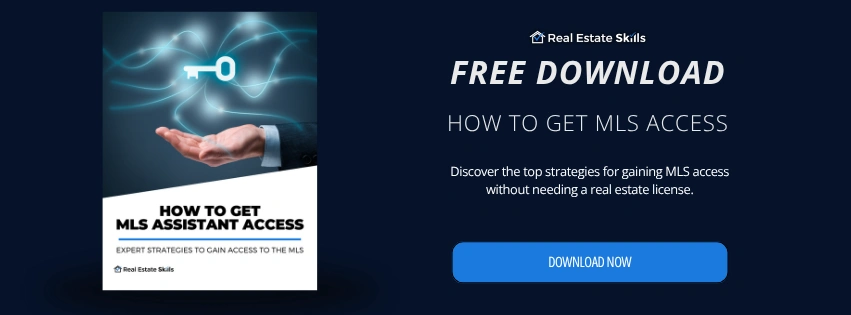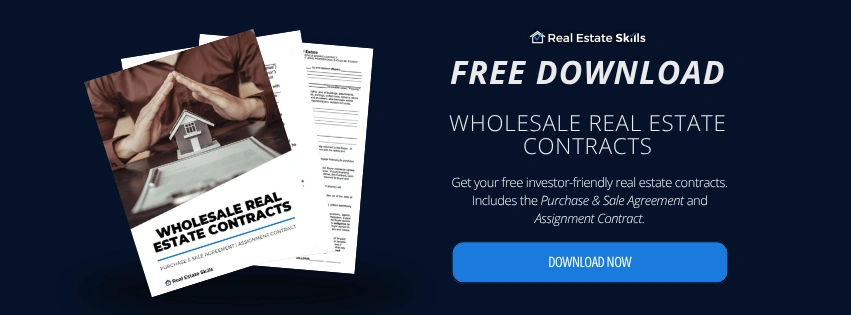7 Vital Tips For Getting Your First Wholesale Deal!
Jun 26, 2025
Landing your first wholesale deal can feel like a big leap, especially when you’re just starting out. But with the right steps and some insider know-how, it’s absolutely doable (and often faster than you think). Whether you’re brand new to real estate or you’ve been researching for a while, these tips are designed to give you a clear path forward.
In this guide, you’ll learn seven proven strategies that can help you confidently close your first wholesale deal. Let's break each of these seven vital tips down below:
- Tip 1: Use the MLS to find distressed properties
- Tip 2: Focus only on ACTIVE listings
- Tip 3: Be the first (or fastest) to make contact
- Tip 4: Treat listing prices as flexible
- Tip 5: Prioritize relationships over transactions
- Tip 6: Only written offers count
- Tip 7: Every “no” gets you closer to a “yes”
If you’re serious about doing your first real estate deal, don’t waste time guessing what works. Our FREE Training walks you through how to consistently find deals, flip houses, and build passive income—without expensive marketing or trial and error.
This FREE Training gives you the same system our students use to start fast and scale smart. Watch it today—so you can stop wondering and start closing.
Tip 1: Use the MLS to Find Distressed Properties
Use the MLS to find houses in distressed condition and those in distressed situations. This is a key starting point. Many people target properties that appear perfect, complete with new appliances, fresh paint, and updated everything. However, we’re looking for properties with old electrical wiring, cracked slabs, fire damage, outdated flooring, and cabinets that require replacement.
These are the properties that often require all-cash purchases. And since most homebuyers need a mortgage, distressed properties are typically off-limits to them—too risky for banks to finance.
We also want to find properties in distressed situations, like divorce, death in the family, short sales, or pre-foreclosures. These sellers often need to move quickly, sometimes due to job loss or other urgent life changes. We uncover these details during our discovery calls.
Most beginners don’t target these deals. Instead, they compete with first-time homebuyers for turnkey properties and wonder why wholesaling isn’t working. But it does work—when you focus on properties in real distress, both physically and situationally.
Read Also: How To Get MLS Access: 6 Strategies For Real Estate Investors
Tip 2: Focus Only on ACTIVE Listings
Ferociously pursue properties with the status of active. This is essential.
On platforms like the MLS or Redfin, properties come with different statuses: active, contingent, pending, sold, expired, withdrawn, or cancelled.
As professionals, we only pursue properties labeled as active—because these are the ones currently available, and the sellers are still accepting offers.
If a property is contingent or pending, it's already under contract. If it's sold, it’s gone. However, 'active' means it's still on the market and open to negotiation.
A quick ninja tip: Some MLS platforms also show properties labeled “BOM” (Back on Market). These were under contract but fell through, and are now active again. These can be prime opportunities, so pursue them aggressively as well.
Tip 3: Be the First (or Fast) to Make Contact
Many successful wholesale deals—by our students and ourselves—came down to one thing: being the first to call.
If you can’t be first, be fast.
Being the second or third person to reach out is still better than being the tenth.
Speed is the name of the game.
Read Also: Smarter Contact Review | Real Estate Skills
Tip 4: Treat Listing Prices as Flexible
Never assume the list price is set in stone. Many newbies believe that if a house is listed at $510,000, it must sell at that price. That’s simply not true.
Think of it like Craigslist. If you find a couch listed for $600 but want to pay $400, what do you do? You make an offer. The seller might accept, reject, or counter.
Same thing on the MLS. If a house is listed at $600,000, that’s just a starting point. Offer the price that works for you.
On Craigslist, sellers often write "OBO"—or best offer—next to the price. Consider every MLS listing as if it says OBO. Make offers based on your analysis and what works for your numbers.

Tip 5: Prioritize Relationships Over Transactions
Focus on building relationships—not just closing transactions. Every discovery call presents an opportunity to establish rapport with the listing agent.
People remember how you make them feel, not just what you say. Make agents feel important—because they are. They control access to the deal.
Here’s a powerful stat: According to the National Association of Realtors, the typical seller recommends their agent at least once, and 20% recommend them four or more times. That tells us relationships are key.
Let’s say a seller named Bob loses his job in a company layoff. He works with an agent to sell his house in a distressed situation. You wholesale that deal. Bob’s friend, who also got laid off, talks to Bob. Bob recommends the same agent.
If you’ve built a great relationship with that agent by closing, doing what you said you would, and being easy to work with, who do you think that agent calls next time they get a fixer-upper?
Relationships lead to more deals. On-market deals can even lead to off-market opportunities if the agent trusts you.
Don't just be transaction-focused. Be relationship-focused.
Tip 6: Only Written Offers Count
This is a critical tip: only written offers count.
Many amateurs believe that texting a price, leaving a voicemail, or casually mentioning an offer during a call is sufficient. It’s not.
A real offer means a written contract. That means obtaining a written purchase agreement from the agent, signing it, and returning it. That’s the offer.
Let’s compare two investors. One makes 100 verbal offers in a month, just phone calls and price discussions. The other sends 100 written contracts. Who gets more deals? Every time, it’s the one submitting written offers.
Verbal offers are easy to ignore. Written offers are real. My business partner Ryan always says, “An offer isn’t real unless it’s in writing.” And he’s right.
A written offer is the most important KPI (key performance indicator) you can track. It's what separates amateurs from professionals.
Tip 7: Every “No” Gets You Closer to a “Yes”
Every “no” brings you one step closer to a “yes.”
I call it the Law of No. The most successful people get the most rejections. But they see every no as progress, not failure.
When an agent doesn’t want to work with you, or an offer gets rejected, you’re still making progress. When you get a property under contract at the wrong price, but learn from it—that’s not failure. That’s feedback.
There’s no such thing as failure in this business. Only feedback.
Most people confuse quitting with failure. They stop making calls, stop analyzing deals, stop submitting offers—and they call it failure. But really, they just quit.
We don’t quit. We learn. If your offer is rejected, ask what price would work. If your cash buyer says no, ask what price would make sense.
Take the feedback. Keep moving forward.
And remember—you’ve seen others do it. They wholesale their first deal, then go on to flip houses, invest in rentals, and build real wealth. Why not you?
This final tip is about more than just real estate. It’s about life. Embrace the "no," see failure as feedback, and continue to improve. That’s how you’ll wholesale your first deal—and build a lasting business.
If you’re serious about doing your first real estate deal, don’t waste time guessing what works. Our FREE Training walks you through how to consistently find deals, flip houses, and build passive income—without expensive marketing or trial and error.
This FREE Training gives you the same system our students use to start fast and scale smart. Watch it today—so you can stop wondering and start closing.
*Disclosure: Real Estate Skills is not a law firm, and the information contained here does not constitute legal advice. You should consult with an attorney before making any legal conclusions. The information presented here is educational in nature. All investments involve risks, and the past performance of an investment, industry, sector, and/or market does not guarantee future returns or results. Investors are responsible for any investment decision they make. Such decisions should be based on an evaluation of their financial situation, investment objectives, risk tolerance, and liquidity needs.








